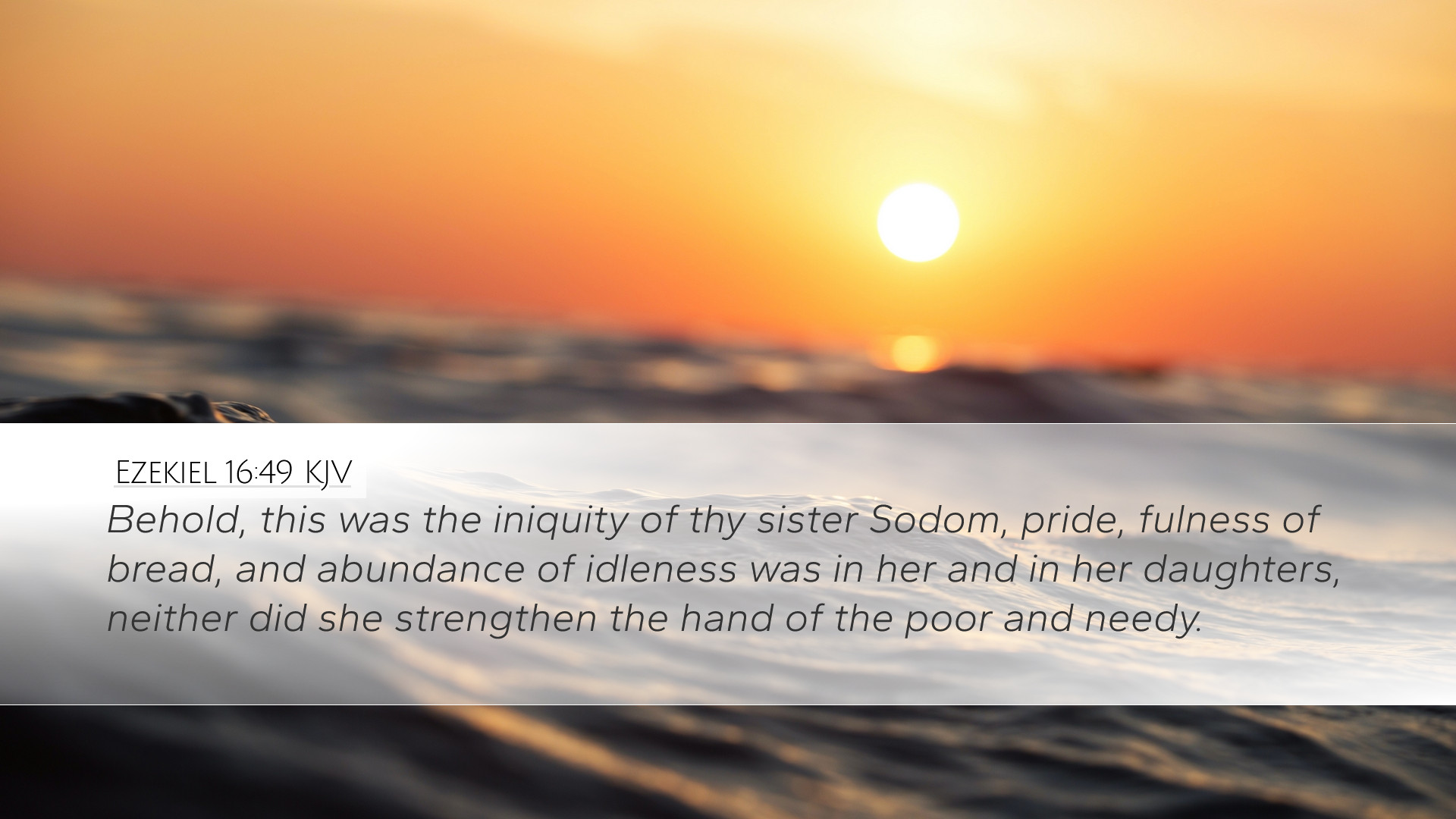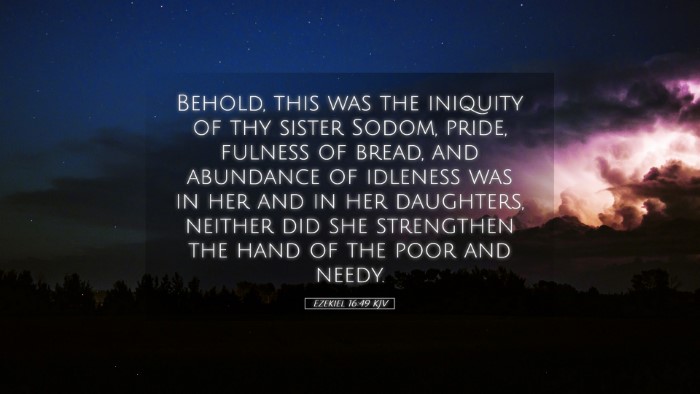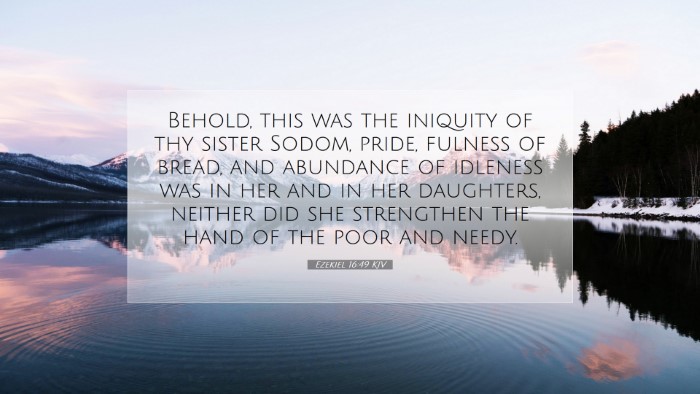Ezekiel 16:49 Commentary
Ezekiel 16:49 states:
"Behold, this was the iniquity of thy sister Sodom: pride, fullness of bread, and abundance of idleness was in her and in her daughters, neither did she strengthen the hand of the poor and needy."
Overview
This verse presents a stark judgment against Sodom, signifying the reasons for its doom. The Lord reveals the underlying moral failures that characterized Sodom and serves as a cautionary tale; its sin is meticulously articulated through the lenses of pride, opulence, complacency, and neglect of the needy.
Commentary Insights
1. The Nature of Sodom's Iniquity
Matthew Henry emphasizes that Sodom's greatest sin was not merely its carnal practices, but a profound sense of pride and self-sufficiency. The sins of Sodom serve as a reminder that societal decay often begins with a heart lifted up in arrogance and a disregard for moral accountability.
Albert Barnes notes the implication of “fullness of bread.” This not only refers to material wealth but also suggests a bustling society where comforts overshadow commitments to righteousness. The abundance led to a state of lethargy which allowed moral decay to flourish.
Adam Clarke points out that “idleness” contributes to corruption. In a society overwhelmed with leisure and comfort, purpose and responsibility fall by the wayside, leading to ethical negligence. In essence, idleness breeds sin while squandering the gifts provided by God.
2. The Consequences of Neglect
The last part of the verse highlights that Sodom failed to strengthen the hand of the poor and needy. This passage indicates a lack of social responsibility, with dire warnings about the consequences that arise when a community turns a blind eye to its vulnerable members.
Henry stresses that the neglect of the poor is not a minor deficiency but a profound failure of moral character. To ignore those in need is to spurn the very foundational love that God has called His people to exhibit.
3. Lessons for Today’s Believers
For modern readers, Ezekiel 16:49 serves as a critical reflection on the societal values that often prioritize wealth and self-fulfillment over compassion and justice. Barnes suggests that churches and communities must examine their priorities, ensuring that they are not swayed by pride and complacency.
Clarke encourages believers to embrace an engaged faith. Followers of Christ must be vigilant against the spiritual lethargy that can accompany abundance, always seeking ways to serve those less fortunate.
4. The Theological Implications
The iniquity of Sodom reveals significant theological truths about God’s expectations for holiness. This passage presents a framework for understanding divine judgment based not on individual sins but the collective moral state of a society.
Henry posits that the ultimate consequence of such iniquity is separation from God. A society that allows pride and apathy to reign loses its connection to the creator, leading to inevitable judgment.
Barnes also highlights that the judgment faced by Sodom reflects a pattern of divine justice accessible to all. It becomes critical for believers to embrace God’s call toward social justice, charity, and humility as central tenets of their faith.
Conclusion
In summary, Ezekiel 16:49 transcends mere historical narrative; it implores each generation to consider the implications of complacency and self-satisfaction in the face of need. The commentary from Matthew Henry, Albert Barnes, and Adam Clarke collectively challenges pastors, students, theologians, and scholars to apply these lessons in contemporary contexts, thereby fostering communities of compassion and accountability before God.


